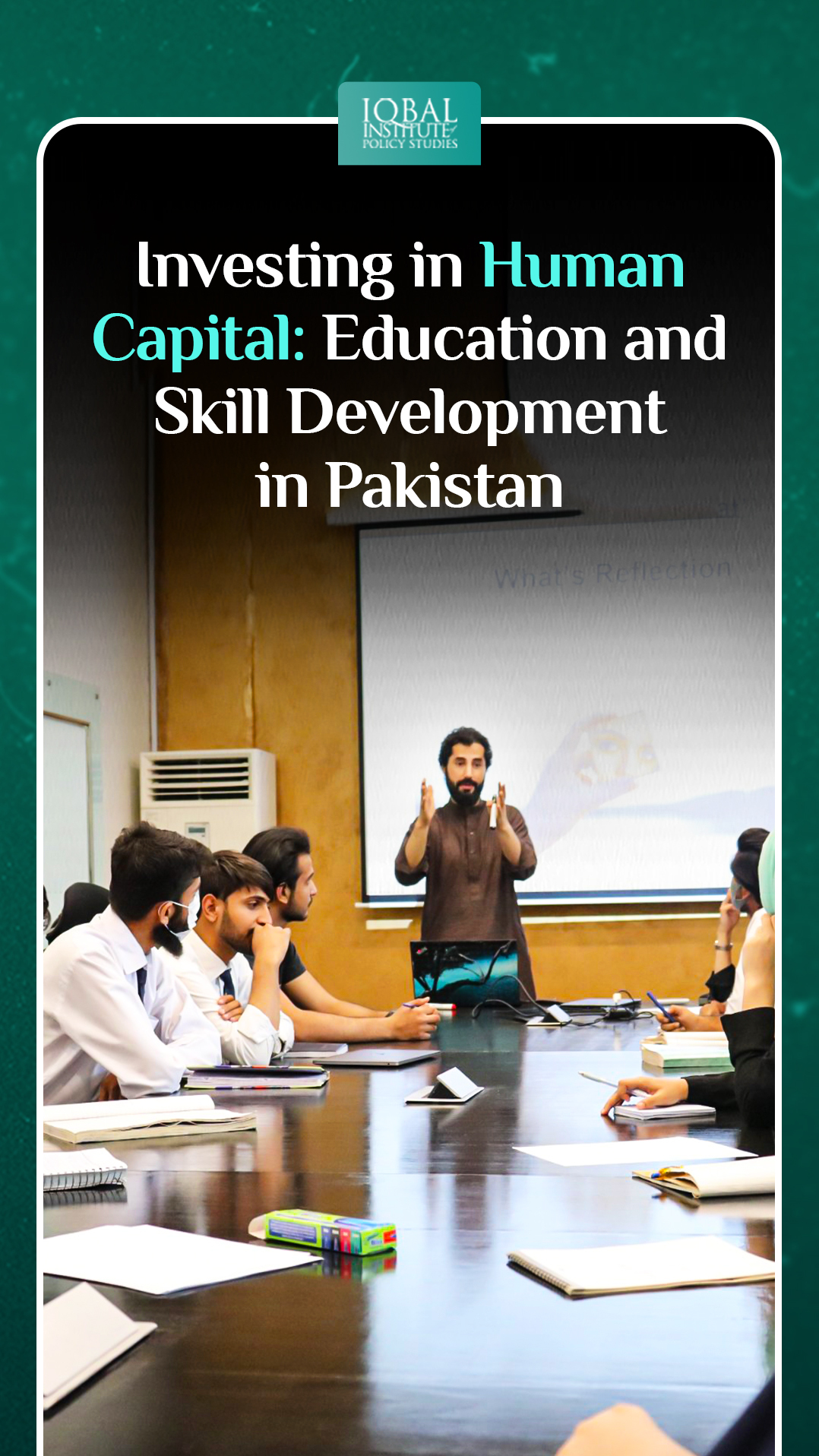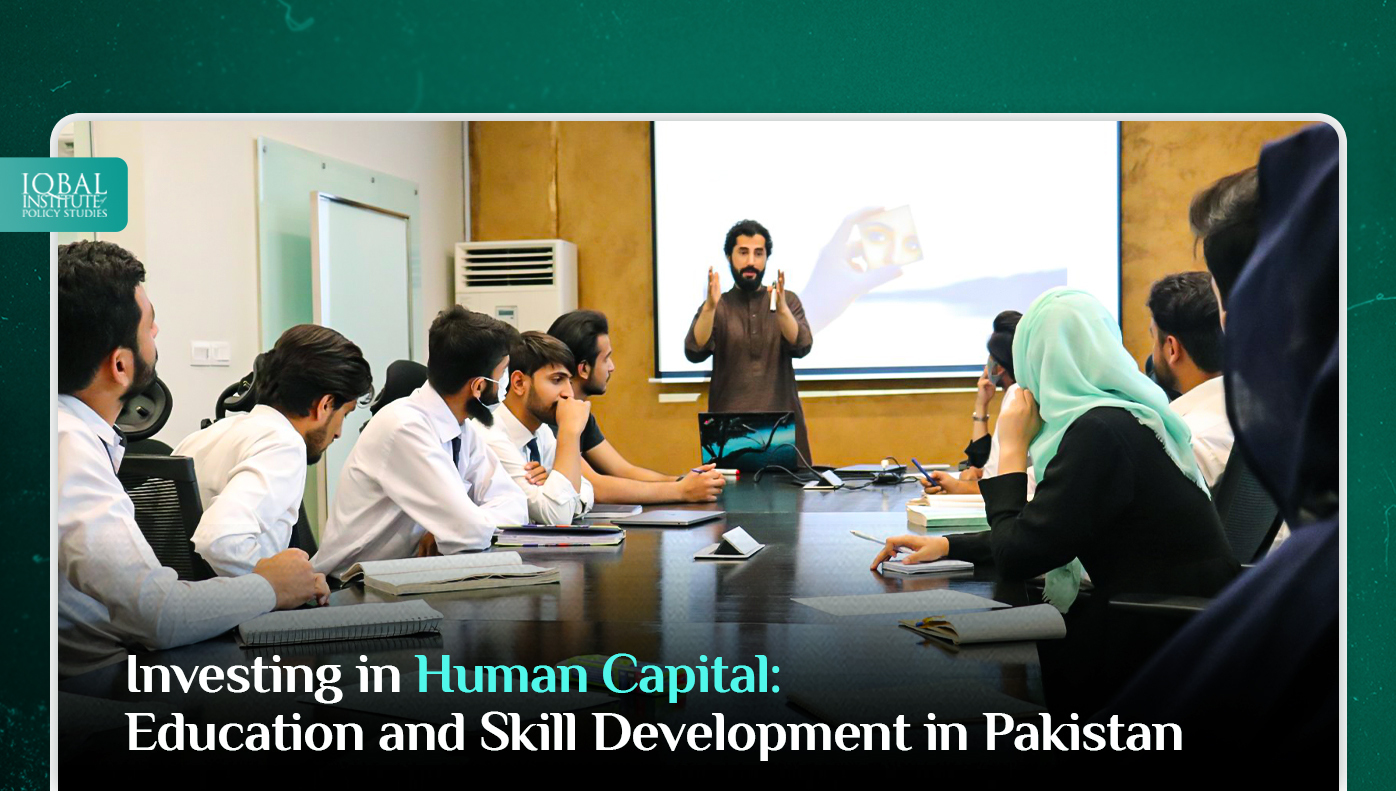In the quest for economic growth and development, nations around the world have increasingly recognized the importance of investing in their human capital. In the context of Pakistan, a nation brimming with potential and youthful energy, the development of human capital through education and skill development holds the key to unleashing unprecedented economic growth. In this comprehensive exploration, we will delve deep into the significance of investing in human capital, explore the current state of education and skill development in Pakistan, and discuss potential strategies to bridge the gap.
The Significance of Human Capital Investment
Human capital refers to the collective skills, knowledge, and capabilities possessed by a nation’s workforce. It encompasses education, health, skills, and productivity levels, all of which contribute directly to a country’s economic growth and development. Investing in human capital is not merely an altruistic endeavor; it is a strategic imperative for any nation aiming to secure its future prosperity.
Education as the Cornerstone
Education serves as the cornerstone of human capital development. It equips individuals with the knowledge and skills necessary to participate in the modern economy. In Pakistan, however, the state of education has been a matter of concern. According to UNESCO, Pakistan has one of the world’s highest out-of-school populations, with millions of children still deprived of basic education.
Challenges in the Education Sector
Access and Enrollment
While enrollment rates have improved, challenges related to access, particularly in rural areas and among marginalized communities, persist. The lack of schools in remote areas and socio-economic disparities hinder access to quality education.
Quality of Education
The quality of education remains a significant concern, with outdated curricula, inadequate teacher training, and a lack of infrastructure. Many students graduate without the practical skills needed in the job market, leading to unemployment or underemployment.
Gender Disparities
Gender disparities in education persist, with girls facing unique barriers to access and retention in schools. These disparities limit the full potential of Pakistan’s human capital.
Skill Development for Economic Relevance
Beyond formal education, skill development is critical for enhancing employability and productivity. Pakistan’s workforce needs to acquire contemporary skills that align with the demands of a rapidly changing job market.
Youth Bulge and Employment Crisis
Pakistan has a sizable youth population, but unemployment and underemployment among young people are high. Many graduates lack the skills required by employers, leading to a disconnect between education and the job market.
Technical and Vocational Training (TVET)
There is a pressing need to promote technical and vocational education and training (TVET) programs to equip individuals with practical skills that are directly applicable to the job market. These programs can bridge the skills gap and increase the employability of the youth.
Strategies for Investment in Human Capital
Universal Access to Quality Education
To address the challenges in the education sector, Pakistan must prioritize universal access to quality education. This can be achieved through several key strategies:
Increased Education Spending
The government should allocate a higher percentage of the budget to education, with a focus on improving infrastructure and teacher training. Adequate funding is essential to ensure that schools are well-equipped and staffed with competent educators.
Curriculum Reform
Regular updates to the curriculum are necessary to make it relevant to the job market and societal needs. Introducing subjects that emphasize critical thinking, problem-solving, and practical skills can prepare students for the challenges of the modern world.
Addressing Gender Disparities
Special initiatives should be launched to promote girls’ education and remove cultural and social barriers. Encouraging the enrollment and retention of girls in schools can significantly boost human capital.
Promoting Skill Development
Technical and Vocational Education
Investment in TVET programs that align with industry needs is crucial. These programs should be designed in collaboration with the private sector to ensure that graduates possess the skills required by employers. Apprenticeships and on-the-job training can also be integrated into TVET programs to provide practical experience.
Public-Private Partnerships
Collaborations with the private sector can lead to the development of industry-specific training programs. Businesses can play an active role in shaping the skillsets of future employees, making the transition from education to the workforce smoother.
Lifelong Learning
Encouraging a culture of continuous learning and upskilling among the workforce is essential. This includes providing opportunities for mid-career professionals to acquire new skills and adapt to evolving industries. Online courses, workshops, and certifications can facilitate lifelong learning.
Healthcare and Well-being
Health and well-being are integral components of human capital. Access to quality healthcare, nutrition, and a clean environment are prerequisites for a productive workforce.
Healthcare Infrastructure
Expanding healthcare infrastructure and services, particularly in rural areas, is critical. Accessible healthcare facilities and affordable healthcare services can improve overall well-being and reduce absenteeism due to illness.
Nutrition Programs
Implementing programs to combat malnutrition and improve the health of children and mothers is vital. Proper nutrition during early childhood is linked to cognitive development, which, in turn, impacts an individual’s ability to learn and contribute to the workforce.
Conclusion
Investing in human capital, specifically through education and skill development, is not a luxury but a necessity for Pakistan’s economic growth and development. A well-educated and skilled workforce can drive innovation, productivity, and entrepreneurship, creating a virtuous cycle of economic prosperity.
By addressing the challenges and implementing the strategies outlined in this comprehensive exploration, Pakistan can pave the way for a brighter and more prosperous future for its people. It is imperative for the government, civil society, and the private sector to collaborate and prioritize human capital development to unlock Pakistan’s full potential on the global stage. With a concerted effort to invest in education, skill development, and healthcare, Pakistan can build a strong foundation for sustainable economic growth and ensure that its people are equipped to face the challenges and opportunities of the 21st century.
This article is written by Radma Nouman. Radma is a research analyst at the Iqbal Institute of Policy Studies (IIPS).



Leave a Reply